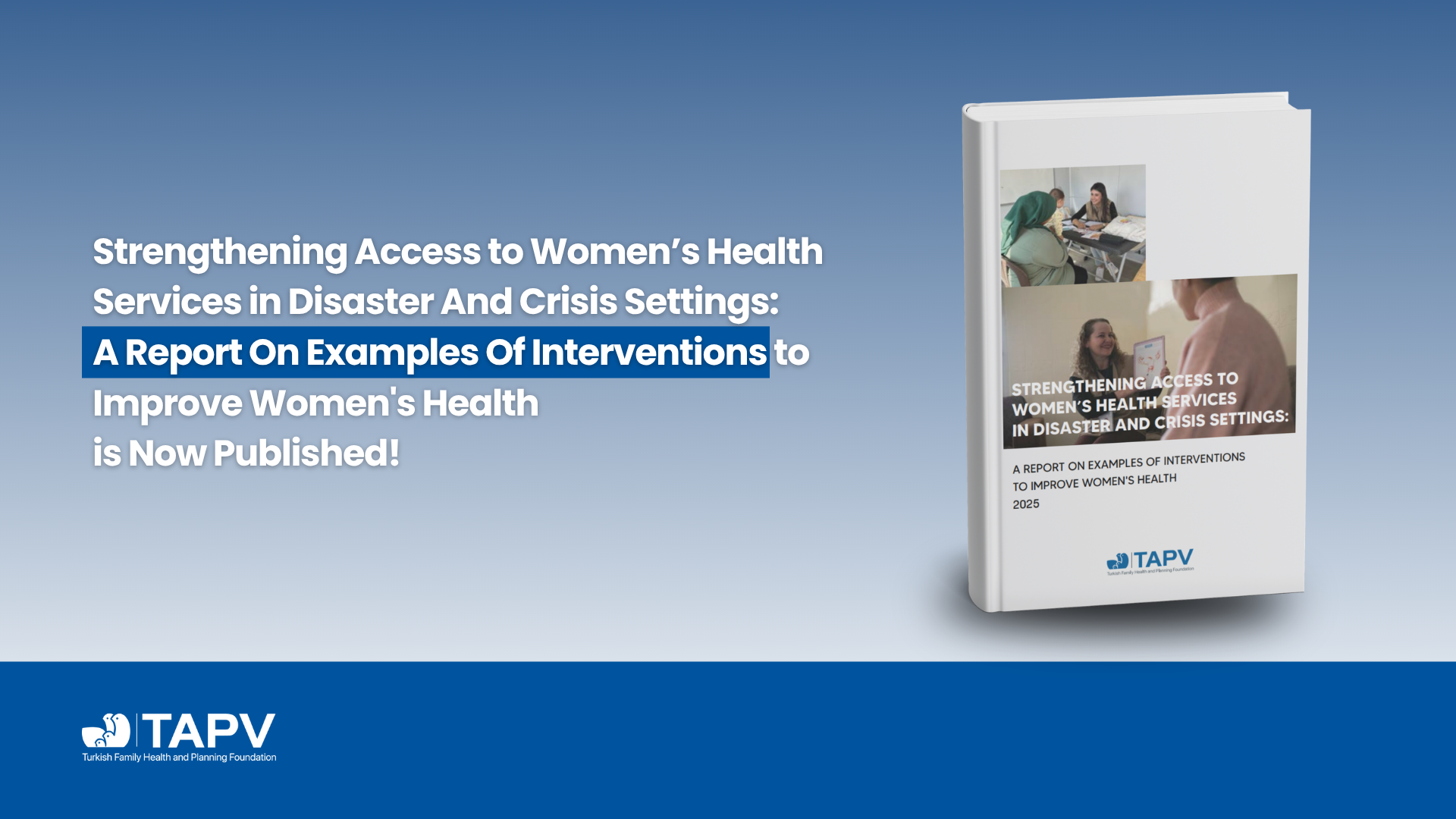Strengthening Access To Women’s Health Services In Disaster And Crısıs Settings: A Report On Examples Of Interventions To Improve Women’s Health İs Now Published!
This report addresses the general state of women’s reproductive health services in Türkiye, detailing the challenges faced, especially during disaster periods, and proposing solutions. Large-scale disasters, such as earthquakes, significantly restrict access to health services, thereby complicating women’s ability to utilize SRH services. It is observed that cultural, economic, legal, and logistical barriers impede the provision of health services in disaster conditions. Overcoming these barriers will be achievable through increased societal awareness and the implementation of more inclusive policies.
The women’s health services provided by civil society organizations, professional associations, trade unions, and municipalities following the February 6, 2023 earthquake centered in Kahramanmaraş, play a crucial role in the post-disaster recovery process. These actors contribute to minimizing harm to women during this process through various activities, including enhancing access to health services, distributing hygiene kits, providing psychosocial support, and conducting reproductive health awareness campaigns. However, greater coordination and financial support are necessary for these services to be sustainable and reach broader populations.
Recommended policies and practices aimed at strengthening access to women’s health services should not be confined to disaster periods but must also incorporate long-term structural solutions. Ensuring women’s uninterrupted access to health services, particularly During crises, necessitates the development of an inclusive health policy and collaborative action between local and central governments.
In conclusion, for the effective provision of women’s reproductive health services during disaster periods:
- Stronger collaboration must be ensured among non-governmental organizations, local governments, and public institutions,
- The integration of SRH services into disaster preparedness plans must be enhanced,
- Financial resources for women’s health must be strengthened and made sustainable,
- Societal awareness initiatives must be increased and cultural barriers overcome,
- Emergency response mechanisms, such as mobile health teams and field hospitals, must be expanded in disaster-affected areas.
Accordingly, the development of holistic and inclusive policies to protect women’s health rights, and the adoption of a healthcare approach founded on gender equality, are of paramount importance. The analyses and recommendations presented in this report aim to contribute to the more effective delivery of women’s health services in future disasters.

